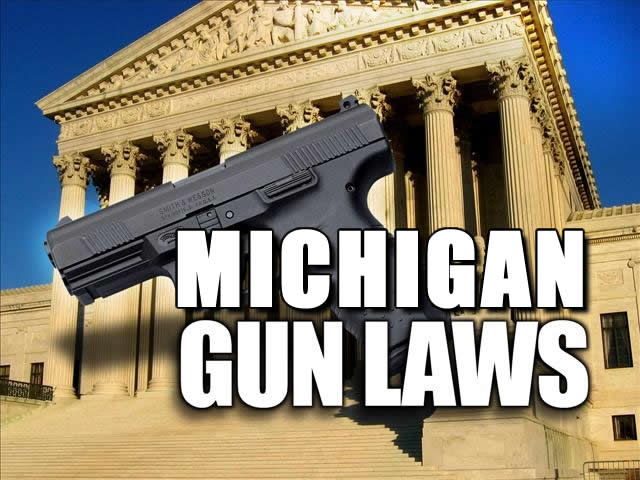Restoring Your Gun Rights
As of 4/17/24…There is still a second amendment
The Second Amendment of the United States Constitution grants citizens the right to bear arms, a fundamental aspect of American freedoms.
However, in some cases, just like every other right being slowly chipped away you may lose those rights which I guess would not be rights but “granted rights” by the grace of those in power. Certainly some people don’t deserve the right.
For residents of Michigan seeking to restore their firearms privileges, understanding the process and requirements is essential.
In this article, we’ll delve into the steps one can take to regain their Second Amendment rights in Michigan.
Understanding Michigan Law
Michigan’s laws regarding firearm ownership and possession are outlined in the Michigan Compiled Laws (MCL). Specifically, MCL 28.422 details the criteria for obtaining a Concealed Pistol License (CPL) and outlines the procedures for individuals seeking to restore their firearms rights.
You may want to come back and take a look at the law in more detail as this article does not dive too deep. Your specific situation may not be mentioned here but in the laws.
Causes of Denial
Before delving into the restoration process, it’s crucial to comprehend the common reasons for the denial of firearms rights. Individuals may face denial due to:
- Criminal Convictions: Felony convictions often result in the loss of firearms rights. This includes offenses such as assault, domestic violence, drug-related crimes, and certain types of theft.
- Mental Health: Adjudications: Individuals who have been involuntarily committed to a mental health facility or have been deemed legally incapacitated may face restrictions on firearms ownership.
- Domestic Violence Convictions: Convictions related to domestic violence can lead to the loss of Second Amendment rights, particularly if the offense involves the use or attempted use of physical force.

Steps to Restore Second Amendment Rights
1. Expungement of Convictions
For individuals with criminal convictions, pursuing expungement may be the first step towards restoring their firearms rights. Michigan’s recent expungement laws allow for the sealing of certain criminal records, enabling individuals to regain their firearms privileges under specific circumstances. Refer to MCL 780.621 for more information on the expungement process.
2. Petition for Restoration
Those who have lost their firearms rights due to criminal convictions or mental health adjudications can petition the court for restoration. This involves filing a petition with the circuit court in the county of residence. The court will review the individual’s case, considering factors such as rehabilitation, conduct since the conviction, and any mitigating circumstances. Consult MCL 28.425 for detailed information on the restoration process.
3. Compliance with Federal Requirements
In addition to state laws, individuals seeking to restore their firearms rights must also comply with federal regulations. This may include completing background checks and adhering to any federal restrictions on firearms ownership.
Seeking Legal Counsel
Navigating the process of restoring Second Amendment rights can be complex, especially considering the legal intricacies involved. As such, seeking guidance from a qualified attorney specializing in firearms law is highly recommended.
An attorney can provide invaluable assistance, ensuring that individuals understand their rights and obligations under both state and federal law.
Real Questions from Real Calls
Question: The application from the ATF Form 4473 asks if I use any illegal drugs. I have my medical marijuana card and it’s legal in Michigan right? So can I get a gun?
Answer: Unless you are the president’s son if you answered “No” on the form where it asks if you use illegal drugs you would be lying and your gun rights probably taken away and possibl;y charged with a crime.
Marihuana is still illegal federally and still in the public health code and listed as a controlled substance 1 in Michigan.
As it states on the ATF Form 4473 Part 1
Q: Are you an unlawful user of, or addicted to, marijuana or any depressant, stimulant, narcotic drug, or any other controlled substance?
Warning: The use or possession of marijuana remains unlawful under Federal law regardless of whether it has been legalized or decriminalized for medicinal or recreational purposes in the state where you reside.
Related Articles
Is Michigan an open carry gun state?
Michigan is an open carry state. There is no law that says it is illegal to do so. The Michigan State Police legal update describes Michigan’s open carry law as follows: In Michigan, it is legal for a person to carry a firearm in public as long as the person is...
You Won’t Lose Your Gun Just For Smoking Recreational Marijuana
You Won't Lose Your Gun Just For Smoking Recreational Marijuana - In Illinois. 11,000 marijuana conviction expungements on 2020 new years day - In Illinois. One database fills while another "empties". Rumors that Illinois gun owners will lose their firearms if they...
The Michigan Supreme Court has ruled they have the right to ban guns
July 27, 2018 - The Michigan Supreme Court has ruled that the Ann Arbor and Clio school districts have a right to ban guns from their schools In a very much watched case that deals a blow to gun rights advocates who argued state law prohibits schools from...
Medical Marijuana, Gun Ownership, and CPLs in Michigan
It is a complex and changing area of law. We know that federal law (18 U.S.C. § 922(g)(3)) makes it a felony for an “unlawful user of … any controlled substance” to “possess … any firearm or ammunition.” Marijuana is classified as a Schedule I controlled substance, so...
US court upholds ban on selling guns to marijuana card holders
SAN FRANCISCO — A federal ban on the sale of guns to medical marijuana card holders does not violate the Second Amendment, a federal appeals court said Wednesday. The ruling by the 9th U.S. Circuit Court of Appeals applies to the nine Western states that fall under...
More Posts
I’ve Been Accused of Criminal Sexual Conduct (CSC) in Michigan
If you are innocent and falsely accused of Criminal Sexual Conduct (CSC) in MichiganIf you are innocent and falsely accused of Criminal Sexual Conduct (CSC) in...
Carrying a Firearm Under the Influence of Cannabis
Laws and Penalties in Michigan of Carrying a Concealed Firearm or EMD Under the Influence of a Controlled Substance.Michigan controlled substance info at end of article...
Carrying a Firearm Under the Influence of Alcohol in Michigan
Laws and Penalties in Michigan of Carrying a Concealed Firearm or EMD Under the Influence of Alcohol or Controlled SubstanceAn individual shall not An individual shall...
Are there exceptions that justify warrantless searches?
Exceptions to your 4th Amendment Rights against Search and Seizure (more to come).The Fourth Amendment of the U.S. Constitution safeguards citizens by prohibiting...
Warrantless Searches in Michigan
I don't need a warrant for that...In Michigan, as in the rest of the United States, the Fourth Amendment of the fading Constitution provides individuals with protection...
One of Michigan’s Top DUI Attorneys
We aggressively defend all aspects of traffic law, from simple civil infractions to more serious alcohol and drug-related offenses. Don't wait till the last second to...
Michigan DUI Laws and Consequences – Second Offense
Michigan DUI Laws and Consequences – Second Offense Operating Under the Influence (OUI) is a serious offense in Michigan. If someone is caught driving under the...
Federal Ban on Owning Firearms by Cannabis Consumers is Unconstitutional Court Says
Federal charges against a non-violent, cannabis-using gun owner were unconstitutional.A federal appeals court panel upheld a lower court's ruling on Wednesday,...
AG Nessel joined 21 attorneys general to regulate the sale of firearms
Extreme Risk Protection Order to prevent individuals from possessing or owning a firearm for eight years following their conviction. That legislation was signed into...
Michigan DUI Laws and Consequences – First Offense
First Offense DUI in Michigan: Laws and ConsequencesFacing a first offense DUI in Michigan can be daunting as the implications are significant and the legal landscape...























